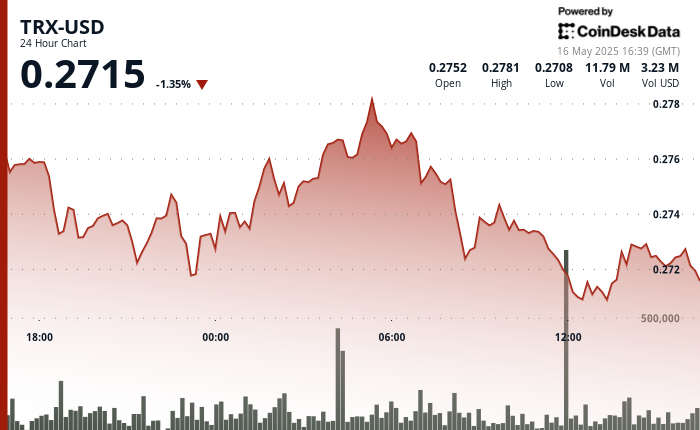Bitcoin Developer Proposes Hard Fork to Protect BTC From Quantum Computing Threats


Bitcoin Developer Proposes Hard Fork to Protect BTC From Quantum Computing Threats
The proposal outlines a plan to enforce a network-wide migration of BTC from legacy wallets to ones secured by post-quantum cryptography.
- A draft Bitcoin Improvement Proposal (BIP) suggests a network-wide migration to post-quantum cryptography for BTC wallets.
- The proposal aims to protect Bitcoin from potential quantum attacks on ECDSA cryptography, which is currently used for signatures.
- The plan involves a hard fork and a migration deadline, requiring users to move their funds to more secure wallets before the deadline.
Bitcoin's resilience against emerging quantum computing threats could soon be reinforced with a proposed hard fork suggested by a Bitcoin developer. The draft Bitcoin Improvement Proposal (BIP) advocates for the migration of BTC wallets to post-quantum cryptography to shield the cryptocurrency from potential quantum assaults on its current ECDSA cryptographic signatures.
Quantum computing, with its utilization of qubits in multiple states simultaneously, poses a significant threat to traditional encryption methods reliant on binary code. To counter this risk, the proposal aims to implement a network-wide transition to more secure wallets secured by post-quantum cryptography after a specified block height. This migration would necessitate users moving their funds to upgraded wallets before a set deadline.
The proposed hard fork has sparked debates within the community as it would render older versions incompatible, potentially affecting holders, including Satoshi's coins. Despite some skepticism about the proposal's practicality and impact on existing coins, proponents argue that such proactive measures are essential in safeguarding Bitcoin's longevity amidst advancing technological threats.
A hard fork debate
To facilitate the transition smoothly, the BIP suggests collaboration among wallet developers, block explorers, and other infrastructure providers in creating tools and alerts for users during the migration process. Failure to upgrade before the deadline could result in non-upgraded nodes diverging from the network.
While this initiative represents one of many strategies proposed to fortify Bitcoin against impending quantum challenges, it underscores the ongoing evolution and adaptability required within the cryptocurrency ecosystem to address emerging cybersecurity risks effectively.

"I admire the effort but this will still leave everyone who doesn't migrate's coins vunerable, including Satoshi's coins," said one Reddit user about the new proposal.
"Bitcoin could implement a post quantum security for all coins but that would need a hard fork, which due to bitcoin's history and the mantra repeated by maxis that would create a new coin and would not be bitcoin anymore."
Preventive measure
During a migration window, users would still be able to move funds freely. The BIP calls for wallet developers, block explorers and “other infrastructure” to build tools and warnings to help users comply.

After the deadline, non-upgraded nodes could fork from the network if they continue accepting legacy transactions.
This is not the first time someone has suggested a mechanism to defend Bitcoin from quantum computing threats. Most recently, BTQ, a startup working to build blockchain technology that can withstand attacks from quantum computers, has proposed an alternative to the Proof of Work (PoW) algorithm involving quantum technology.
However, this proposal would also require a hard fork involving miners and nodes replacing their existing ASIC-based hardware with quantum-ready infrastructure.
Siamak Masnavi contributed reporting.



